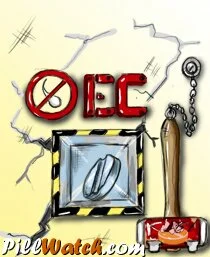
Children are what we live for. They are the best in our life. OK! I am all for it. Nevertheless, we should always remember that everything is good if the time and place are right. It especially concerns such vitally important things as pregnancy and kids.
Age and health problems can be serious obstructions for becoming pregnant. Still, what can we do if an unplanned sex occurred? Emergency Contraception (EC) is a good option in this case.
EC protects from an unintended pregnancy when your birth control fails (for example, a condom breaks or you forgot to take your birth control pills), when a woman is abused and forced to have sex, or if she just did not plan it.
Emergency contraceptives include pills and intrauterine devices (IUDs). Pills contain high doses of hormones that delay or inhibit ovulation, interfere with fertilization or prevent implantation of a fertilised egg (zygote). These pills can be of two types: progesterone-only and combined. The drugs which contain progesterone only are said to be more effective (up to 89% effectiveness) and to have milder side effects. The combined pills are made of progesterone and estrogen. They are 75% effective.
Both kinds of drugs can be taken in 72 hours after an unprotected sex (first dose); the second one - at 12 hours interval. The sooner the pill is taken, the higher effectiveness is, though EC works well even after 120 hours have passed.
It is worthy to note that multiple studies showed: emergency contraceptives do not protect from reproductive tract infections, including HIV/AIDS; they cause neither an abortion nor birth defects. Moreover, these pills should not be prescribed if a woman is breastfeeding, has given birth in the last 6 weeks, has cardiovascular or kidney disease, epilepsy, migraine headaches, diabetes, hypertension, breast, genital or liver cancers.
Common side effects caused by the use of birth control pills for EC are vomiting, nausea, headaches, breast tenderness, dizziness, fluid retention and irregular bleeding. They usually disappear in 1-2 days. At the same time, persons who suffer from severe side effects must consult their health provider right away.
In many countries these emergency contraceptives are available without a prescription; nevertheless, in some others the latter is obligatory.

Another birth control method is inserting intrauterine devices (IUDs) into the uterus (done by a doctor). Copper IUDs make the uterus hostile to sperm and prevent fertilization and implantation. A device can be placed in 5 days after an unprotected sex and remain inside up to several years, preventing from the pregnancy. This method is much more effective (99%) than the emergency contraceptive pills.
The information above is, probably, the most valuable for teens, because they are the most unpredictable. Sometimes they do not know what they will do the next moment themselves; therefore, unplanned sex (especially for the first time) is a usual procedure.
Dear parents, you cannot stop or postpone puberty of your kids, you cannot suppress their desires, still you can teach them and make them wise. Do not loose your chance read this article together and do not let your daughter spoil her life.
Ivanna
| Tip for you : Sign-in with Your OpenID and post faster, easier and with easy access to all your past posts. | |
|
Your Nick: |















